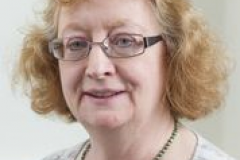Measuring Human Capital
Human capital is defined as the stock of skills, knowledge and experience of an individual or population, which can productively be applied in the economy and is widely referred to as one of the main drivers of economic growth. This project makes an important contribution to improving this measure by incorporating health status into the HCS model and developing a skills classification measure that can be used instead of qualifications. The research also considers the impact of internal migration on regional HCS and assesses the extent to which these affect regional growth and standards of living.

Summary & aims
This project makes several contributions to improving the measurement of human capital stocks (HCS) in the UK. We review existing measures and suggest a number of extensions and alternatives.
The UK has well-documented regional disparities in economic growth and productivity. Variation in the level of skills and qualifications of each region is one contributing factor. If more productive individuals congregate in some local areas, often cities, this can generate a brain drain elsewhere, and have a negative impact on growth in affected regions. We investigated internal migration by gender, age and qualification and assessed the likely implication for measures of HCS.
Methodology
The project looks to extend the standard method for estimating human capital stocks (HCS), in different ways and using different data.
For work on regional HCS, we estimated transition probabilities – the chance an individual transitions from one region to another. We outlined how these transition probabilities might be incorporated into the standard method to better measure regional HCS.
Findings and Recommendations
Augustin de Coulin also worked on this project
ESCoE Discussion Paper 2022-28, “Transition Probabilities, Wages and Regional Capital Stocks“
Principal Investigator
Co-Investigator

















